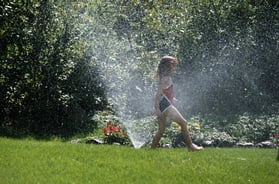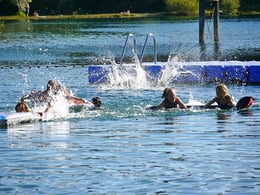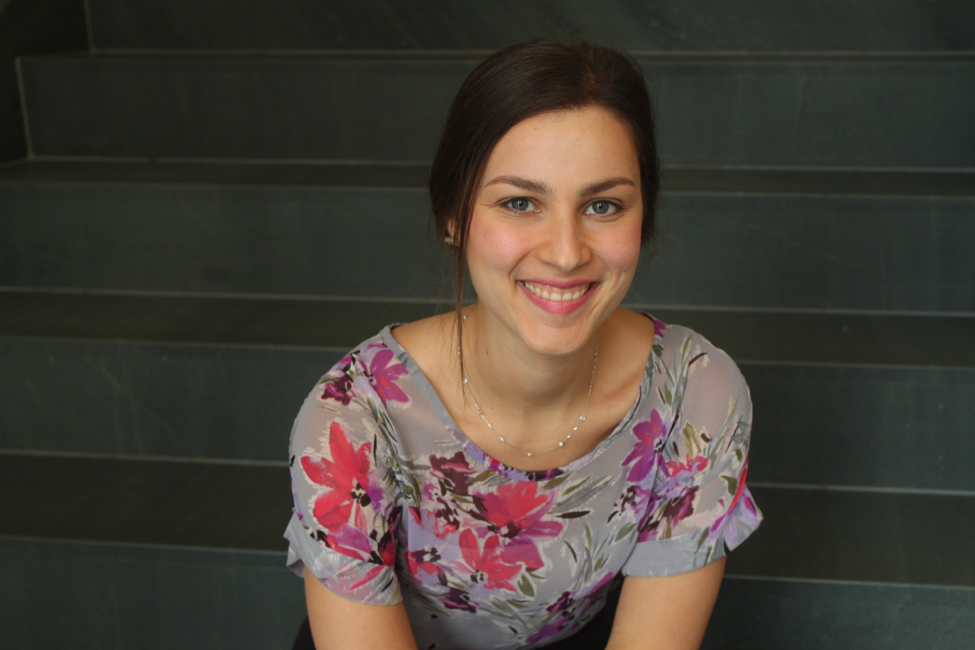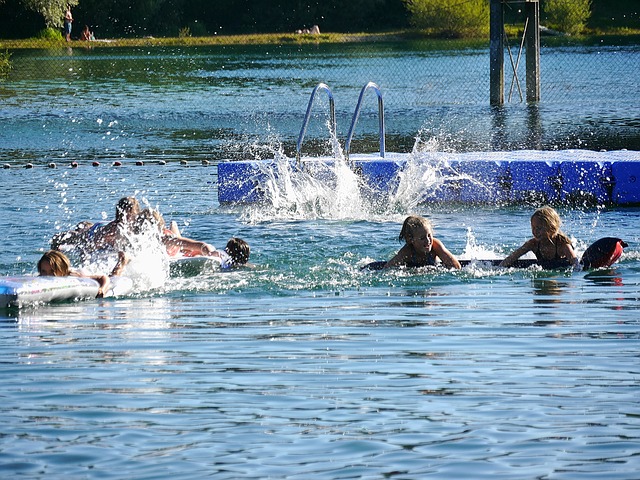How to Choose a Summer Camp for Your Child with Autism
Summer camp can be a positive and enriching experience for children on the autism spectrum, providing an alternative to the rigorous school year routine and opportunities for peer interactions. However, finding the right fit for your child can be intimidating and does require research and planning - here are some steps to help get you started.
- Research Types of Summer Camps and Identify Summer Goals
 Availability of summer camps for children with autism can vary from state to state, but there are some common structures. Ultimately, you are the expert on your child, and it is important to articulate what your goals are for this summer experience. Are you looking for a program that is mostly fun and social, or are you hoping your child will gain and maintain skills that require therapy-based instruction? Are you seeking to “mainstream” them with typically developing children, or do you think they would benefit from a cohort of children who share similar needs and goals?
Availability of summer camps for children with autism can vary from state to state, but there are some common structures. Ultimately, you are the expert on your child, and it is important to articulate what your goals are for this summer experience. Are you looking for a program that is mostly fun and social, or are you hoping your child will gain and maintain skills that require therapy-based instruction? Are you seeking to “mainstream” them with typically developing children, or do you think they would benefit from a cohort of children who share similar needs and goals?
- Inclusive Programs - These types of summer programs integrate typically developing children and children with special needs into an inclusive environment. They are set up to accommodate people from all backgrounds and with all abilities into their programming, and they anticipate that children will have different needs and strive to make their schedule and staffing models as accessible as possible.
- Specialized Programs - Specialized summer camps for children and teens with autism spectrum disorder (ASD) and other special needs can be a great place for campers to experience programming designed specifically for them. These types of camps also often aim to prevent regression that can happen over summer breaks by including activities to target socialization and skill building in other areas.
- Extended School Year Programs (ESY) - If your child’s school believes they are at risk for experiencing serious regression of skills over the summer, while parted from the routine and instruction the school year provides, they may be considered eligible to participate in an Extended School Year Program (ESY). ESYs vary from state to state, and even school to school, but at their core, they are designed to help children with autism continue to work toward the goals outlined in their Individualized Education Plans (IEPs), even during the summer. If you’re interested in pursuing this, contact your child’s special educator and/or bring it up at their next IEP meeting. Taking these steps sooner rather than later is best because districts often require assessment data to consider your child eligible for their services. In some cases, districts can even use this eligibility to provide financial assistance to help parents pay for an inclusion or specialized camp experience.
- Find Available Summer Camps in Your Area
One of the best ways to locate a good summer camp program is to talk to other parents who have children with autism or to ask therapists or special education teachers. Having a recommendation from a trusted source that a camp has a high quality program for your child is invaluable.
Also, various online resources are available to guide you through the process of identifying programs that may match your needs in your area, and community and support groups are also great places to start. If you find the name of a camp in your area through an online source, ask that camp to provide you with two references to contact so that you can speak to other parents about their experiences with the camp.
- Washington State Summer Camp Directory for Children with Special Needs
- The American Camp Association
- Contact local Autism organizations or support groups
- Interview Potential Camps to Find a Best Match for Your Child and Family
 Summer camp is a great opportunity for a child with autism to gain new experiences and make fond memories, and finding the right match requires finding a camp that is willing to get to know and understand your child and your family. Wherever you end up sending your child to camp, they should show willingness and excitement to partner with your family to ensure that your child has a warm and positive experience.
Summer camp is a great opportunity for a child with autism to gain new experiences and make fond memories, and finding the right match requires finding a camp that is willing to get to know and understand your child and your family. Wherever you end up sending your child to camp, they should show willingness and excitement to partner with your family to ensure that your child has a warm and positive experience.
Sample Questions for Camps:
- Where is the camp located, and what are the set hours? What is the camp’s daily schedule of activities, and do these activities align with your summer goals for your child?
- What percentage of campers have ASD? What is the camp’s history of including children with ASD into their program?
- Who is running the camp, and what is their prior experience with children with autism? What are the credentials and qualifications of the rest of the staff? How are staff trained? What licensure does the camp have?
- What is their intake/evaluation process like? How will they get to know the routines of your family, needs of your child, and progress and abilities of your child? Will they speak to your child’s school?
- How do they generally communicate with families throughout the summer to provide updates, troubleshoot solutions to problems, and respond to questions?
- What are their medical facilities and operations like? Who provides medication at camp, if needed? How do they access medical support if needed?
- What are their safety and emergency protocols?
- If the camp is an inclusive program, what is the camp’s philosophy around integrating children with special needs into the general population? What structures and activities have they created to do so? What fun activities take place at camp, and what can your child expect to participate in?
- If the camp is specialized, what is their philosophy around promoting socialization and skill building? How do their activities, schedule, and staff support those goals?
- Can the camp refer you to the names and phone numbers of parents you can speak to about their family’s experience there?
- If you are looking for a camp for a year from now, can you visit camp for a day this summer?
- Do they have scholarships and/or grants available, or do they know where to apply for them?
- Consider How to Finance a Summer Experience
 One major aspect of camp to consider is how to pay for it, as camp can be expensive. There are grants and scholarships available to families to help ease the burden of providing a high quality experience for your child.
One major aspect of camp to consider is how to pay for it, as camp can be expensive. There are grants and scholarships available to families to help ease the burden of providing a high quality experience for your child.
- Autism Speaks provides grants to institutions and individuals to help make camp accessible
- Some states and school districts offer financial help to families to provide summer programs
- Local service clubs like Kiwanis, Rotary, and Lions clubs sometimes provide grants to individual families
- Summer camps themselves often offer scholarships, so don’t hesitate to ask
- The Autism Support Network has compiled an interactive list of organizations that give local grants to individual families
- Think About Preparing Your Child for Their First Day of Camp
Once you choose a camp and register your child, you’ll want to begin thinking about how to prepare them for transitioning into a new routine. Downloading the resource below can help you prepare your child for the new sensory stimuli and situations that camp provides, and can help you alleviate some of the anxiety that often accompanies a transition for children with ASD.

Lauren Panzano
Lauren Panzano was a middle school classroom teacher and school administrator for several years, and now works as a curriculum specialist and executive functioning coach with students in the Boston area. She has worked in several types of special education inclusion programs, and is passionate about creating a school environment in which all students can thrive. She believes that the more we understand the assets and needs of the children in our care, the better we can nurture their development. Lauren is a graduate of Brandeis University and the Harvard Graduate School of Education’s Language and Literacy program.





